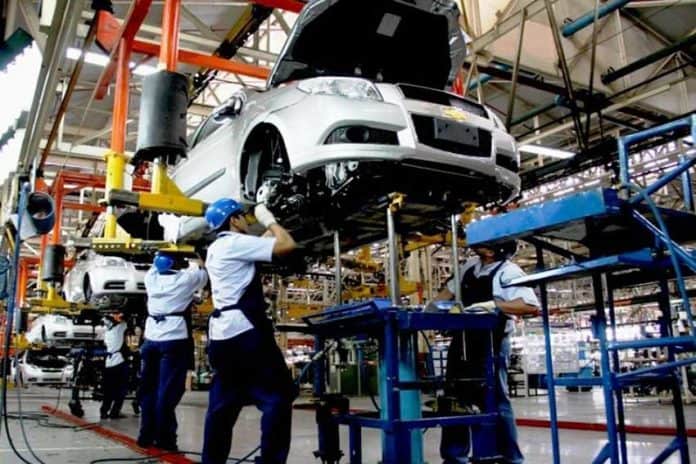Mexico has publicly accepted for the first time the United States’ proposal to include set minimum wages for the automotive industry as part of a modernized North American Free Trade Agreement (NAFTA).
“. . . What we’re talking about now is that a percentage of vehicles made in North America be made in a high-wage area,” Economy Secretary Ildefonso Guajardo said in a radio interview.
“What does that mean? . . . Of 100% of cars made in NAFTA [countries], it could be around 35% or 40% are made in a high-wage area . . .” he added.
In order to qualify for tariff-free status in the North American market, the United States is pushing for 40% of the content of cars and 45% of the content of pickup trucks to be made by workers who are paid at least US $16 per hour.
That’s more than five times the US $3 per hour that many auto sector workers in Mexico currently earn.
Mexican and Canadian officials said today that Mexico and the United States are getting closer to reaching a deal on rules of origin for the auto sector.
Guillermo Malpica, head of the trade and NAFTA office for the Mexican government, told an automotive sector conference in Michigan that the United States “started showing more flexibility last week” on content and other contentious issues.
Canadian trade negotiator Colin Bird, who appeared alongside Malpica, also said that negotiators are making headway on automotive content rules.
The United States is asking that cars made in NAFTA countries have at least 75% local content in order to be exempt from duties while Mexico has offered to raise locals content levels to 70%. The current rate is 62.5%.
With regard to steel, aluminum and glass content, Guajardo ruled out that a 70% North American content rule could be applied — as proposed by U.S. Trade Representative Robert Lighthizer — but suggested that bonuses could be offered to manufacturers who met those levels.
Bird also said that “harnessing the power of trade agreements to promote higher wages is the kind of policy all three countries can get behind.”
Both officials said they are optimistic that a new NAFTA deal will be reached although they cautioned that the outstanding contentious issues are challenging.
Nevertheless, they are hopeful that progress will be made at ministerial talks scheduled for later this week.
The so-called sunset clause pushed by the United States that would see NAFTA automatically expire if an updated agreement is not negotiated after five years remains a sticking point, with both Mexico and Canada opposed to its inclusion.
Malpica said that Mexico has instead suggested that the trade pact be “reviewed” every five years while Bird said that “any one country being able to hold the agreement hostage every five years does not provide the certainty” businesses need to invest.
The Mexican peso spiked 0.2% today on the latest NAFTA news but later dipped.
Some analysts predict that if a new deal is made the peso could strengthen to below 18 per dollar from its current mark of around 18.6 to the greenback.
NAFTA renegotiation talks started in August last year and were initially scheduled to conclude by the end of 2017 but dragged on due to a lack of consensus on key issues.
The United States’ decision to impose metal tariffs on its neighbors further complicated the process while United States President Donald Trump has repeatedly threatened to terminate the agreement and more recently said that separate deals with Mexico and Canada could be sought.
However, President Enrique Peña Nieto said last week he was optimistic that an updated NAFTA could be reached in August after Mexican and United States officials agreed to step up talks.
Source: El Economista (sp), Reuters (sp)
